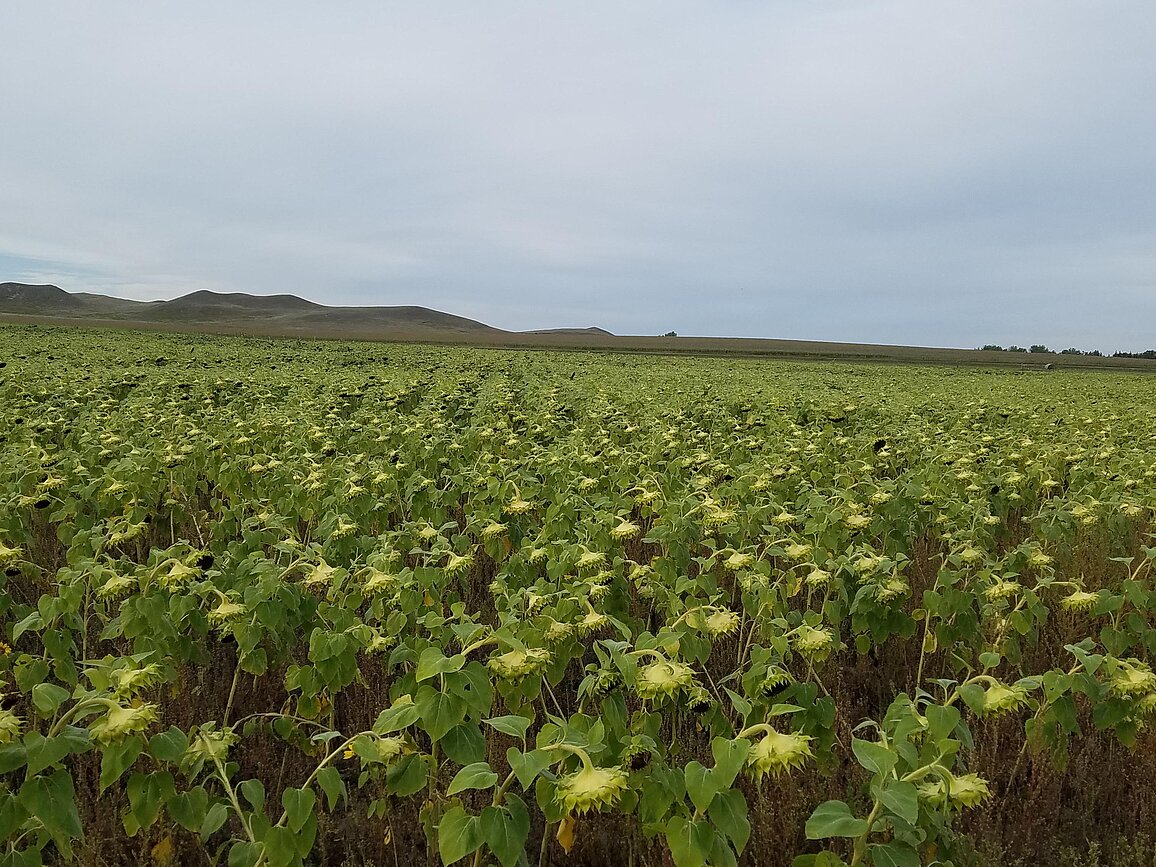Cattle, Crop Integration Research Showing Promise

For the past 10 years, a multidisciplinary team of NDSU scientists and specialists have studied the impacts of integrating cattle and crop production and have seen significant results.
As part of the study, yearling steers grazed on native grasses, then grazed on a sequence of field peas and barley, corn, cover crop and baled cover crop hay before going to the feedlot. The crop rotation also included spring wheat and sunflowers, which were harvested as cash crops.
The team found that:
- Keeping the steers grazing well beyond the normal grazing season, thus delaying their entry into the feedlot, saved feedlot costs and produced yearlings that weighed considerably more than if they had gone through the traditional growing/finishing process.
- The steers improved soil health by providing manure and urine, which contributed to increased organic matter diversity.
- Soil nutrients, especially nitrogen, increased, eliminating the need to apply nitrogen to the crops.
- Grazing reduced carbon dioxide and tended to reduce nitrous oxide greenhouse gases.
- Spring wheat yield and net return increased.
“The longer you allow cattle to graze, the more opportunities you have to make money,” says Doug Landblom, animal scientist the NDSU’s Dickinson Research Extension Center and research team leader. Others involved in the research, funded by two Sustainable Agriculture Research and Education grants, includes Songul Senturklu, a visiting scholar from Turkey; Larry Cihacek, Soil Science professor; Rob Maddock, Animal Sciences associate professor; Tim Petry, Extension livestock economist; Cheryl Wachenheim, Agribusiness and Applied Economics professor; and Steve Paisley, director, Sustainable Agricultural Research and Extension Center, University of Wyoming.
Richardton, N.D., producer Lucas Hoff, who has worked with the team and incorporated integrated systems on his operation, has increased the number of cows on a pasture and been able to reduce his harvesting costs because his grazing cattle are harvesting for him.
“I feel very confident in saying it’s been successful,” he says.
FOR MORE INFORMATION:
Doug Landblom, 701-456-1109, douglas.landblom@ndsu.edu
www.ag.ndsu.edu/DickinsonREC/integrated-crop-and-livestock-systems


